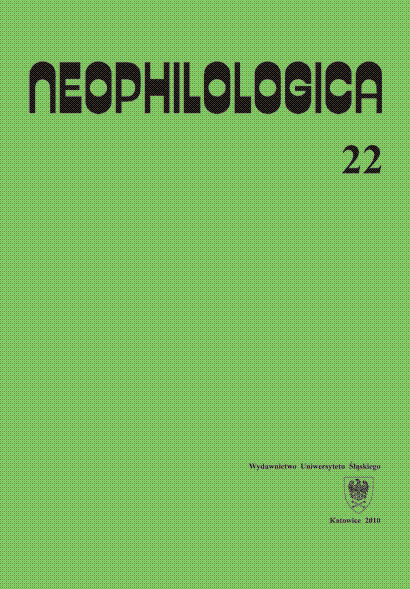Causes et inférences
Causes and inferences
Author(s): Gaston GrossSubject(s): Language and Literature Studies
Published by: Wydawnictwo Uniwersytetu Śląskiego
Keywords: Relaters of causa; connectors: parce que (because) and puisque (since); overcodage; inferences; circumstantial relationships.
Summary/Abstract: In this article we reflect on how to code relaters of cause. These relaters do not always express cause in the same way. Connectors such as parce que (because) or puisque (since) are adequately coded: they can only be interpreted in French as expressing cause and there is never any ambiguity associated with them. Other relaters are overcoded when, as well as the cause, they also have added information, such as obligation relating to the cause as in forcer quelqu’un à faire quelque chose (to force someone to do something). Thirdly and lastly, a large number of connectors are undercoded: they do not express cause of their own, and they only have this interpretation through inference. This is the case which is examined in this article. This inference may be noted for metaphorical causes, such as that of motion (Cette politique conduit au désastre/This policy leads to disaster); of origin (Cette politique est la source de tous nos maux/This policy is the source of all our ills); or from botany (L’échec était en germe dans cette tentative/Failure was in the seed of this attempt). Other inferences rely on the idea of frequency (Chaque fois qu’il pleut, cette route est impracticable/Every time it rains this road is impracticable) or quite simply parataxis: La route est mouillée, il a plu/the road is wet. It has rained. It thus may be seen that cause has multiple interpretations and that the way it is coded is an important step in analysing circumstantial relationships.
Journal: Neophilologica
- Issue Year: 2010
- Issue No: 22
- Page Range: 33-52
- Page Count: 20
- Language: French

